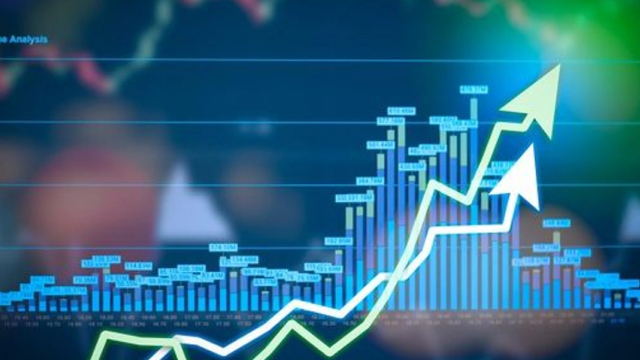S&P 500: A Rollercoaster Ride Amidst Inflation Concerns and Trade Tensions
The S&P 500 index showed a steady performance during the past week, with minimal fluctuations, as investors eagerly anticipated the release of crucial economic data and Federal Reserve Chairman Jerome Powell’s semiannual testimony before Congress. Despite this relative calmness, the stock market outlook remains clouded by concerns over inflation risks and President Trump’s tariffs.
Inflation Risks: The Elephant in the Room
Inflation, a sustained increase in the general price level of goods and services, has been a significant concern for investors in recent months. The Consumer Price Index (CPI), which measures the average change in prices over time for a basket of consumer goods and services, is set to be released this week. Analysts predict a 0.3% increase in the overall CPI for March, following a 0.2% rise in February. An unexpectedly large increase in the CPI could lead to further market volatility and potential sell-offs.
Trade Tensions: A Double-Edged Sword
Trade tensions between the United States and its major trading partners, including China, have added another layer of uncertainty to the stock market. President Trump’s recent announcement of tariffs on steel and aluminum imports from Europe, Mexico, and Canada has led to fears of a potential trade war. The implications of such a conflict could include higher prices for consumers, disrupted supply chains, and reduced corporate earnings.
Impact on Individuals
For individual investors, the current market conditions may necessitate a more cautious approach. Diversification across various asset classes and sectors can help mitigate the impact of potential market volatility. Keeping an eye on economic data releases and staying informed about geopolitical developments is crucial for making informed investment decisions.
- Consider diversifying your portfolio to minimize exposure to any single sector or asset class
- Stay informed about economic data releases and geopolitical developments
- Consider seeking advice from a financial advisor or investment professional
Impact on the World
The ripple effects of these market conditions extend far beyond individual investors. Companies with significant exposure to the sectors most affected by inflation or trade tensions, such as energy, manufacturing, and technology, may experience increased volatility in their stock prices. Moreover, consumers could face higher prices for goods and services, potentially leading to reduced spending and slower economic growth.
- Companies in energy, manufacturing, and technology sectors may experience increased volatility
- Consumers could face higher prices for goods and services, potentially reducing spending
- Slower economic growth may result from reduced consumer spending and business uncertainty
Conclusion: Navigating the Uncertainty
As the stock market continues to grapple with inflation risks and trade tensions, investors must remain vigilant and adaptable. By staying informed about economic data releases, geopolitical developments, and market conditions, individuals can make informed decisions and navigate the uncertainty. Diversification and seeking professional advice can also help mitigate potential risks and minimize the impact of market volatility on your investment portfolio.
In these uncertain times, it’s essential to remember that market fluctuations are a normal part of the investment landscape. By maintaining a long-term perspective and focusing on your financial goals, you can weather the storm and emerge stronger from the current market conditions.





